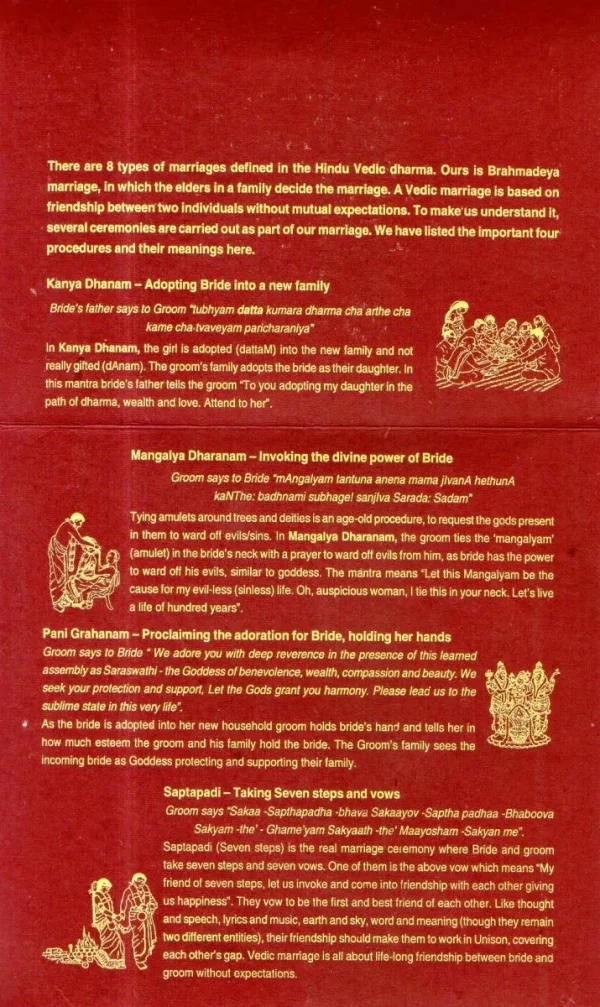In the TamBrahm (read Vedic) marriage ceremony there are several procedures which explain the core principle of a Vedic marriage. Most 'Vaathiyars' do not know the meaning of the mantras. As the chew and spew the mantras, bride and groom try to catch the jumbo-mumbo from Vaathiyars mouth and vomit it, as they try to get rid of the pains of the procedure asap.
If one really understands the meaning of these mantras, atleast the critical ones, it would go a long way in helping them to lead their life peacefully and happily.
Marriage in our dharma is based on friendship between two individuals without any mutual expectations. If the couple really understand it and treat their spouse as first and best friend, share all their egos and expectations fully, there would not be any divorces and suicides.
Though the marriage ceremony may itself get elongated, it is high time our Vaathiyars learn the meanings of mantras and then explain them in Tamil to couple, their families and the audience. It is extremely important to save our marriage institution.
Here are some meanings from the invitation of my upcoming brother's marriage. I wish him all the best and a very happy married life. I hope the couple and their families remain true to their words and meanings here..

If one really understands the meaning of these mantras, atleast the critical ones, it would go a long way in helping them to lead their life peacefully and happily.
Marriage in our dharma is based on friendship between two individuals without any mutual expectations. If the couple really understand it and treat their spouse as first and best friend, share all their egos and expectations fully, there would not be any divorces and suicides.
Though the marriage ceremony may itself get elongated, it is high time our Vaathiyars learn the meanings of mantras and then explain them in Tamil to couple, their families and the audience. It is extremely important to save our marriage institution.
Here are some meanings from the invitation of my upcoming brother's marriage. I wish him all the best and a very happy married life. I hope the couple and their families remain true to their words and meanings here..

